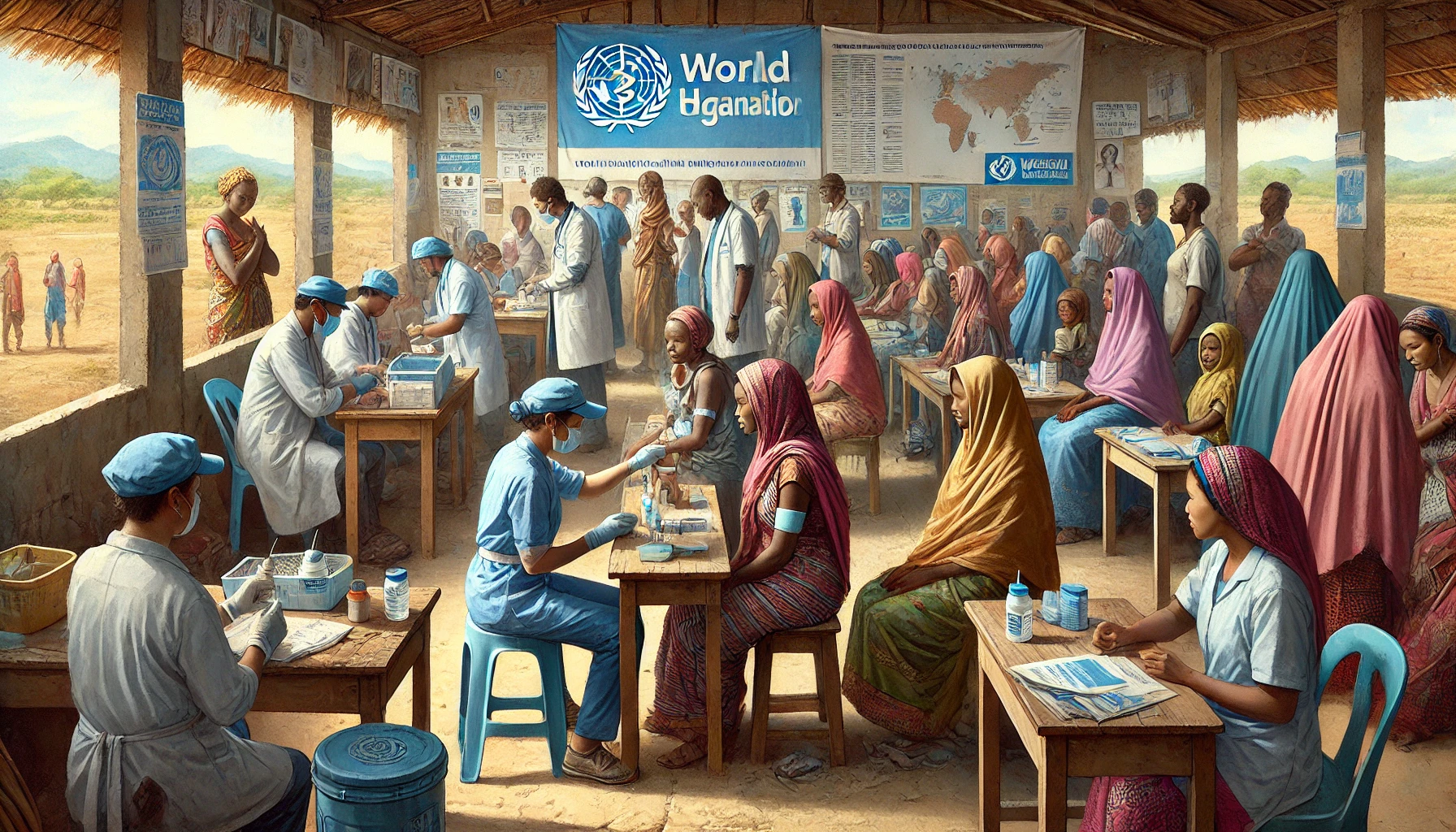Global Leaders Urge Action to Eliminate Cervical Cancer at G20 Health Summit
“Cervical cancer is both preventable and curable if detected early and treated effectively,” said the South African Department of Health.

- Country:
- South Africa
Global health leaders have issued an urgent call for the international community to intensify efforts to eliminate cervical cancer, the only noncommunicable disease deemed preventable and potentially eradicable. The appeal was made during the Group of Twenty (G20) Health Working Group meeting hosted in Zimbali, just outside Durban, South Africa.
Led by the Government of South Africa in partnership with the World Health Organization (WHO) and global health agency Unitaid, the summit focused on accelerating progress in cervical cancer interventions, especially in low- and middle-income countries (LMICs), where the disease continues to claim lives due to limited access to primary health care and screening services.
A Preventable Disease with High Fatality
Cervical cancer remains the second most common cancer among women in South Africa. Despite its preventability, statistics from the WHO reveal that nearly 350,000 women around the world lost their lives to the disease in 2022. The burden is highest in regions with weak health systems, highlighting the urgent need for expanded access to vaccines, screening, and treatment technologies.
“Cervical cancer is both preventable and curable if detected early and treated effectively,” said the South African Department of Health. “Yet, it disproportionately affects women in low-resource settings.”
Breakthrough Technologies, But Limited Access
In recent years, advancements in HPV vaccines, screening tests, and minimally invasive treatments have revolutionized cervical cancer prevention. Vaccination against the Human Papillomavirus (HPV)—the virus responsible for nearly all cervical cancer cases—remains the cornerstone of prevention. In addition, HPV testing (with options for self-sampling) and innovative treatment devices to remove pre-cancerous lesions have made it possible to deliver services even at community-level health centers.
However, these life-saving tools are still out of reach for millions of women.
Unitaid’s Deputy Executive Director, Tenu Avafia, emphasized the importance of scaling up access. “Unitaid has invested US $81 million, or R1.4 billion, to reduce costs, expand volumes, and address key operational issues in cervical cancer screening and treatment. This investment allows countries to adopt proven solutions with lower financial risks,” Avafia said.
Still, he warned that persistent funding shortfalls remain a major obstacle to establishing comprehensive national programs for cervical cancer elimination in LMICs.
A Call for Collective Action
The G20 health working group session underscored the need for global solidarity, urging nations to pool domestic resources, leverage blended financing, and collaborate with multilateral development banks. Delegates emphasized that such efforts are essential to scaling up proven solutions, ensuring sustainability, and reducing dependency on international aid.
Dr. Sandile Buthelezi, Director-General of South Africa’s Department of Health, said improving women’s health should be seen as a broader economic and social development priority.
“Investing in women’s health is not just a moral or health imperative—it’s an economic one,” he said. “It drives social stability, enhances productivity, and breaks the intergenerational cycle of poverty. The elimination of cervical cancer represents a powerful example of what can be achieved through global cooperation.”
South Africa’s Commitment and Broader Health Agenda
South Africa reaffirmed its commitment to scaling up its national cervical cancer prevention and treatment programs. These efforts align with its broader health agenda, including the African Union’s Agenda 2063 and the Lusaka Agenda, both of which promote sustainable development and equitable healthcare access.
Health Minister Dr. Aaron Motsoaledi used the platform to advocate for increased global investment in health and the reallocation of national resources toward universal health coverage (UHC). South Africa’s National Health Insurance (NHI) system, a flagship UHC initiative, is designed to ensure financial protection and efficient resource utilization for all citizens.
“The G20 platform must lead by example in addressing global health financing gaps,” Motsoaledi said. “We need innovative, long-term financing mechanisms to close the funding gaps, especially in preventive health services like those for cervical cancer.”
The Road to 2030
The G20 meeting comes at a critical time as the global community works toward achieving the 2030 Sustainable Development Goals (SDGs). In 2020, the WHO launched the world’s first global strategy to eliminate cervical cancer, with ambitious targets: 90% of girls fully vaccinated with the HPV vaccine by age 15, 70% of women screened by age 35 and again by 45, and 90% of women with pre-cancer or cancer receiving appropriate treatment.
With just five years remaining to meet these targets, stakeholders agree that more must be done to accelerate implementation and mobilize resources.
The three-day summit, which began on Wednesday, 26 March, and concludes today, 28 March, has served as a powerful reminder of what can be achieved through shared responsibility, innovation, and determination.
As South Africa takes a leading role in championing women’s health and cancer elimination, the message from Zimbali is clear: cervical cancer can—and must—be eliminated.










